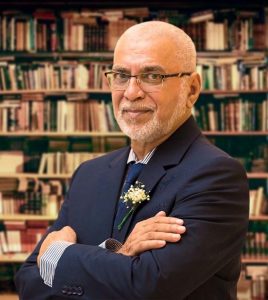The deafening silence of the Muslim world
It is an undeniable fact that most of the world refugees are Muslims from Syria, Somalia, Iraq, Myanmar and Afghanistan, due to war, natural, historical and cultural factors that have led to violent regional upheavals and desperate poverty, over population, corruption, dysfunctional state bureaucracy, underperforming school system, failed industrial performance.
Islam requires believers to assist and protect vulnerable people and offers a number of mechanisms for their care and support. According to Islamic migration law (hijrah), individuals have the right both to seek and to be granted asylum in any Muslim State. Furthermore, it is the duty of Muslims to accept and protect refugees for as long as they seek protection. In comparison to modern refugee law, hijrah offers a broader definition of a refugee, and gives individuals, rather than states, the right to determine asylum. However, despite its significance in Islam, hijrah is rarely invoked by Muslim states today. The promotion of Islamic teachings on refugees could encourage Muslim states to widen their acceptance and protection of refugees.
The history of Islam, even before the Prophet Muhammad’s (saw) time is replete with examples of mass migration, requests for protection and the granting of refugee status. Indeed, many of the messengers and prophets were compelled to leave their homes and lands as a result of persecution. The Prophet Ibrahim was forced out of Mesopotamia and migrated to Palestine. The Prophet Yusuf was a victim of human trafficking when he was enslaved and taken from Palestine to Egypt. The Prophet Musa fled from Pharaon’s tyrannical rule in Egypt twice, firstly on his own to Midian and thereafter with his people when they miraculously crossed the Red Sea to escape that apartheid state. Later, the Prophet Issah became a refugee as a baby when his mother Maryam attempted to protect him from Herod’s infanticide by leaving Bethlehem for Egypt and thereafter to Nazareth as an internally displaced person.
After the intensification of the persecution of the early Muslims in Makkah, the companions of the Prophet Muhammad (saw) travelled to Abyssinia and sought asylum in the Christian kingdom of the Najashi. Even after the Quraysh, with whom the Najashi enjoyed excellent political and trade relations, sought their extradition to Makkah on fabricated charges of creating social disharmony, the Najashi refused to surrender them to a people who would persecute them. The Prophet Muhammed himself fled an attempt on his life escaping to Madinah with his companions after the ruling tribes of that city agreed to grant them asylum.
Besides, Islamic history is filled with incidents of the Islamic state granting asylum to the masses without discriminating on the basis of faith or ethnicity. In the 13th century, the Muslim sultanates of India accepted refugees en masse fleeing from the Middle East in the wake of Mongol devastation of the region. In 1492, the Ottoman Sultan Bayezid II welcomed over 150,000 Jews fleeing Spanish persecution to Turkey, granting them citizenship and then building beautiful synagogues for the newly arrived refugees. In 1860, when local Druze attacked the Christian quarter in Damascus, Emir Abdelkader of Algeria saved over four thousand Christians by giving them refuge in his compound. In the late 19th Century, the Ottoman Empire granted safety to approximately 1.5 million Circassian refugees fleeing Tsarist ethnic cleansing in the Caucasus, after the Queen of England refused to come to their assistance.
Even members of the public have a role to grant security or protection to the refugees. In the Quran, Allah praises the Ansār in Madinah for their attitude towards the Muhājirūn who arrived in their city seeking to rebuild their broken lives.
Today, neither the Muslim States open doors to refugees, nor the current political and economic woes of European countries are offering asylum seekers, protection and instead are demonizing and denying them the ability to live a dignified existence.
In fact, refugees are people who simply by the lottery of life have been born into poverty that itself is a consequence of Western colonialism and imperialism. They are striving to make a better life for themselves and their families. We are asked by Allah to tend to the needs of those burdened with hardships, no matter who they are or what land or nation they fled, even if they have done so for economic reasons, because the earth and all that is in it belongs to Allah, and Allah’s servants have the right to travel in the earth seeking provision:
“It is Allah who made the earth accessible to you, so travel its roads, and eat of what Allah has provided, but know that to Allah you will return.”
As Muslims, we must be fully engaged with the asylum debate, proposing positive solutions for the government and fulfilling our individual duties to those arriving on our borders. By so doing, we may be able to put in place the mechanisms by which asylum seekers and refugees are treated humanely and with both compassion and respect, as a result of which we receive the divine mercy which we are all so desperately in need of in these difficult times.
Bashir Nuckchady
NOTE : Les points de vue exprimés dans cette rubrique ne reflètent pas nécessairement ceux de la rédaction et n’engagent que les auteurs eux-mêmes.



![[Khutbah – La réflexion du Vendredi] Gaza : Le piège de l’oubli ou la stratégie de la diversion](https://sundaytimesmauritius.com/wp-content/uploads/2025/06/gaza-netzarim-corridor-humanitaire-218x150.jpg)



![[Yoga] A shared legacy, a shared future](https://sundaytimesmauritius.com/wp-content/uploads/2025/06/Yoga-Article-HC-218x150.jpg)
![[Khutbah – La Réflexion du Vendredi] Tawakkul, la confiance absolue en Allah (swt)](https://sundaytimesmauritius.com/wp-content/uploads/2025/06/Tawakkul-218x150.jpg)
![[Conseillers du MSM] Cumul de postes sur les boards : Un système lucratif d’enrichissement personnel](https://sundaytimesmauritius.com/wp-content/uploads/2025/06/pic-2-150x150.jpg)
![[National Agency for Drug Control] Sam Lauthan : « C’est tous ensemble qu’on vaincra la mafia »](https://sundaytimesmauritius.com/wp-content/uploads/2025/06/WhatsApp-Image-2023-02-16-at-4.22.48-PM-e1738665704593-150x150.jpeg)
![[OMCA Foundation] Un dîner de gala pour soutenir l’accès aux soins des plus démunis](https://sundaytimesmauritius.com/wp-content/uploads/2025/06/f960dc68-ed3e-4619-ae8e-dd8f374d07c4-150x150.jpg)

![[Conseillers du MSM] Cumul de postes sur les boards : Un système lucratif d’enrichissement personnel](https://sundaytimesmauritius.com/wp-content/uploads/2025/06/pic-2-100x70.jpg)
![[National Agency for Drug Control] Sam Lauthan : « C’est tous ensemble qu’on vaincra la mafia »](https://sundaytimesmauritius.com/wp-content/uploads/2025/06/WhatsApp-Image-2023-02-16-at-4.22.48-PM-e1738665704593-100x70.jpeg)
![[OMCA Foundation] Un dîner de gala pour soutenir l’accès aux soins des plus démunis](https://sundaytimesmauritius.com/wp-content/uploads/2025/06/f960dc68-ed3e-4619-ae8e-dd8f374d07c4-100x70.jpg)